The Christian is “standing”, so as to welcome God in patient “silence”, in order to hear his voice and “go out” to proclaim Him to others, knowing that faith is always “an encounter”.
Pope Francis said this in the Mass he celebrated on Friday morning, 10 June, in the Chapel of Santa Marta. These three attitudes, he explained, encourage and revive the lives of all those who feel overwhelmed by fear in the most difficult moments.
“We know that faith is neither a theory nor a science: it is an encounter”, Pope Francis noted at the beginning of his homily. Faith is “an encounter with the living God, with God who is alive, the Creator, the Lord Jesus, with the Holy Spirit, it is an encounter”. He explained that in the first reading, taken from the First Book of Kings (19:9,11-16), “we heard about the prophet Elijah’s encounter with God”. The prophet “Elijah had a a long history, he is a victor: he struggled so much, so much for the faith, because the people of Israel had turned away from faithfulness”.
Moreover, the Pope added, “to use a word from the Gospel, and Jesus also says it to the people of Israel, they had become an ‘adulterous generation’: on the one hand they wanted to worship God and on the other to worship idols”. There is “a phrase that the prophet Elijah said to the people: ‘how long will you go limping on two feet?’”. He uses the example of “limping with two feet: not standing firm with either God nor with idols, having one foot in one place and the other foot in another, or as we might say in everyday speech, ‘this person is well with God and with the devil’”.
Pope Francis pointed out that “Elijah struggled greatly against this situation the people were in, and he won: he won a strong fight against the four hundred prophets of the idols, he won them on Mount Carmel and he killed all with the power of God: he is the victor”. But then Elijah “went down from the mountain and heard the news that Queen Jezebel, a cruel and unscrupulous woman, wanted to kill him for this, because she was an idolatress”. And so Elijah “was afraid”. “He himself, the victor, the greatest, was afraid of that woman and went away: he fled”. It was a fear that “made him feel down”. So much so, the Pope explained, that Elijah asks himself why: “I have done so much yet in the end the story is always the same: escaping and defending myself from the idolaters”. It seems that he “no longer steps up: death is better, and he sinks into deep depression. Lying on the ground, in the shade of a tree, he wants to die; he enters into the sleep that comes before death, that depressed sleep”.
But then, the Pope said, “the Lord sends an angel to wake him: ‘Get up! Have a little bread and water’”. And Elijah obeys him, but “then goes back to sleep”. The angel “comes back a second time”, again inviting him to get on his feet. Once he gets up, the angel gives him “the next word: ‘Go!’”. Therefore, Pope Francis noted, “in order to encounter God it is necessary to return to man’s position at the time of creation: standing and walking”. Because “this is how God created us: at his height, in his image and likeness, and on a path”. In fact, the Lord says: “Go, go forward, cultivate the land, make it grow, and multiply”. He also says: “Go out, and go to the mountain and stand upon it in my presence”. And so, the Book of Kings tells us, “Elijah stood up and, getting up on his feet, he goes out”.
In the Gospel, particularly “in the parable of the prodigal son”, we see the same situation. It is the reality in which that child found himself, “when he was depressed, watching the pigs eat while he was hungry”. At that moment “he thought about his father and said to himself: ‘I must get up and go’ to find the father”. The Pope suggested “these two words: ‘get up’ and ‘go out’.
Therefore, Elijah, the Pope continued, “went up the mountain to meet the Lord and, behold, the Lord passed by”. In what way “did the Lord pass by? How does the Lord pass by? How can I encounter the Lord in order to be sure that it is him?” asked Francis, re-reading the page from the Old Testament: “Before all else a great and powerful wind tore the mountains apart, and it shattered the rocks before the Lord, but the Lord was not in the wind”.
Therefore “the Lord was not in the noise, in the majesty, he was not there”. And again, “after the wind came an earthquake, but the Lord was not in the earthquake; after the earthquake came a fire, but the Lord he was not in the fire”. Elijah, the Pope said, “watched and waited for the Lord: there was so much noise, so much majesty, so much movement, and the Lord was not there”. Finally, “after the fire came the whisper of a gentle breeze, or, as it is in the original, “the thread of a resounding silence”. And there was the Lord”.
“To encounter the Lord”, Pope Francis pointed out, “we must enter into ourselves and feel that ‘thread of a resounding silence’”, because “he speaks to us there”. “What happens?” the Pope asked. The answer is in that “Go!”, because the Lord “gives us a mission” as he did to Elijah: “Now, retrace your steps, do not be afraid of the queen, retrace your steps, into the wilderness and anoint this one as king, another as a king, and Elisha as a prophet and your successor”. Elijah knows “this is the mission he must fulfill”.
Elijah’s mission suggests “three clear things” the Pope said. “In order to go and find the Lord, standing, going out of ourselves, on a path”, the first clear point is precisely to be “standing and on a path”. The second point is “to have the courage to wait for that whisper, that “thread of resounding silence”, when the Lord speaks to the heart and we encounter her”. The third point is the “mission”, the invitation to retrace his steps in order to go “forward”.
This is “the message that this Scripture passage teaches us today”, said Pope Francis, recalling: “We must always seek the Lord: we all know what difficult moments are like, moments that pull us down, moments without faith, darkness, moments which we do see not the horizon, where we are unable to get up, we all experience them!”. But “it is the Lord who comes, he restores us with bread and with his strength, and he tells us ‘get up, go forward and walk’”.
Therefore, the Pope continued, “in order to meet the Lord we must be standing and on the path”; then we must “wait for him to speak to us: with an open heart”. “He will tell us ‘I am’; and here faith becomes stronger”. Pope Francis then asked: “is faith for me to keep? No, it is to be given to others, to anoint others, for the mission”. Therefore “standing and on the path; in silence so as to encounter the Lord; and on a mission to bring this message, this life, to others”. “In this passage from the First Book of Kings we see the real life of a Christian”, said Pope Francis.
In conclusion, the Pope prayed “that the Lord may always help us: he is always there to help us to get back on our feet”. Even if we fall, we must have the strength to “stand up” and get “on the path, to not be closed in the selfishness of our comfort: to be patient, waiting for his voice and for the encounter with him, and then to be brave in the mission, bringing the Lord’s message to others”.

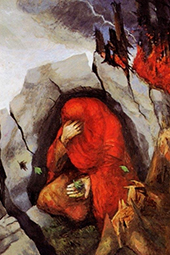
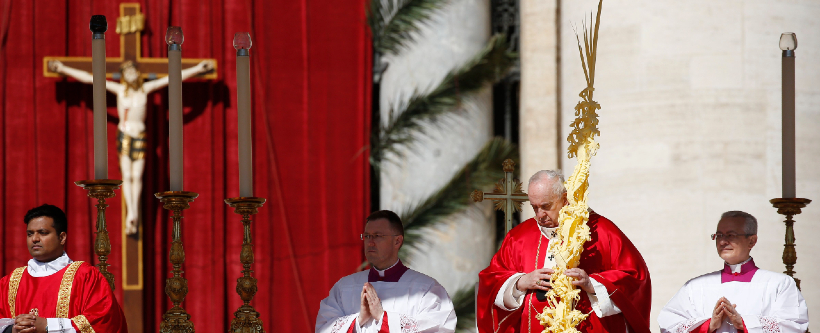
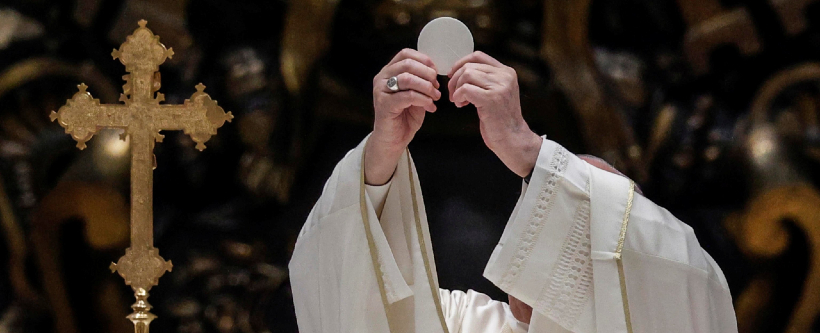
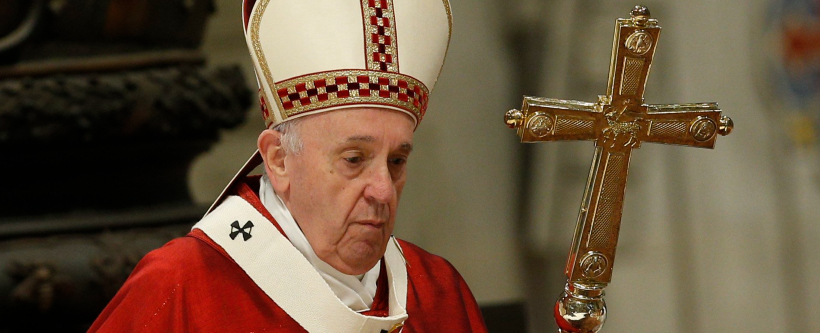
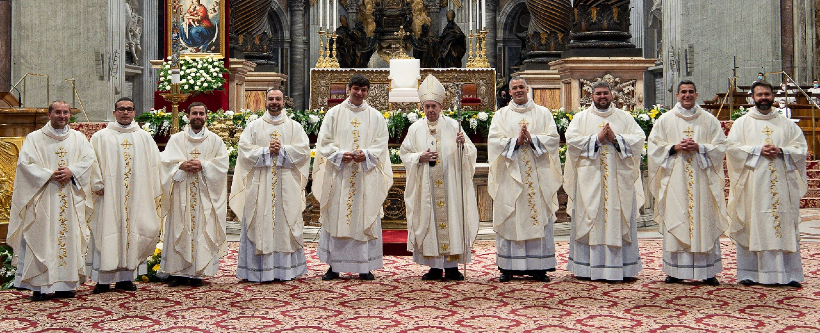
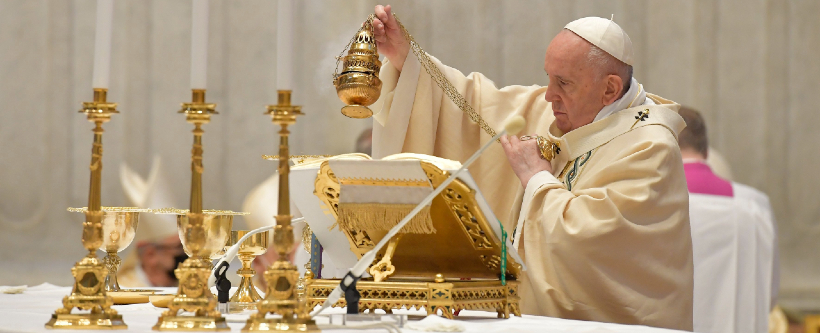
Facebook Comments